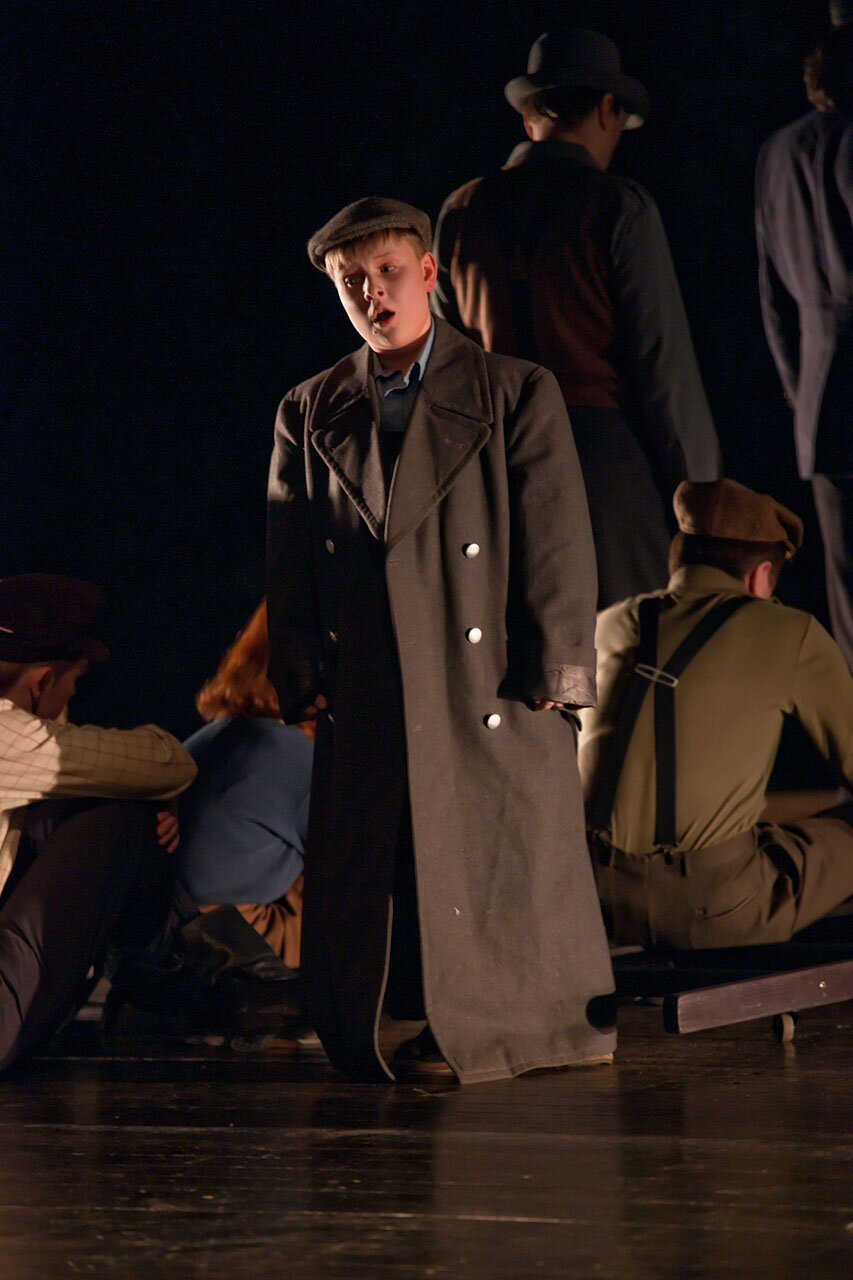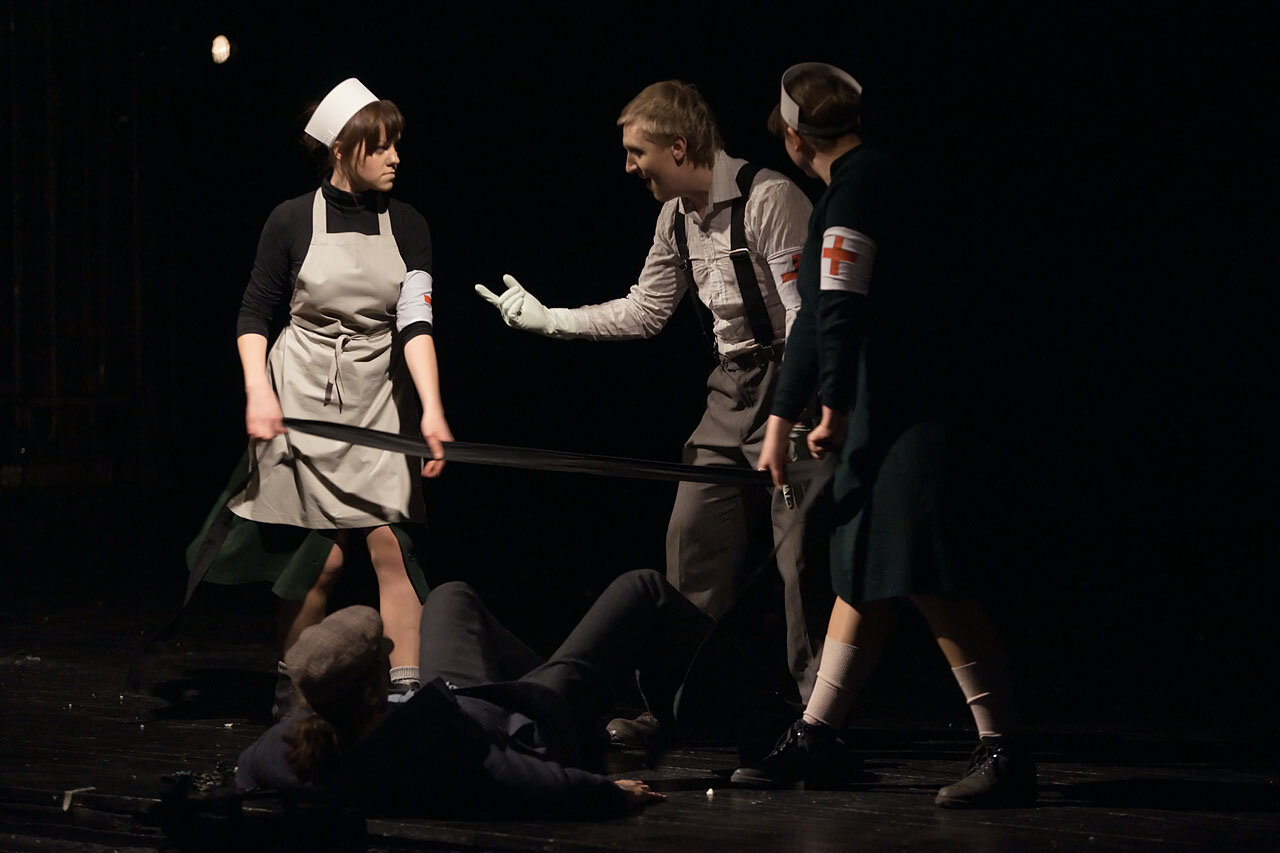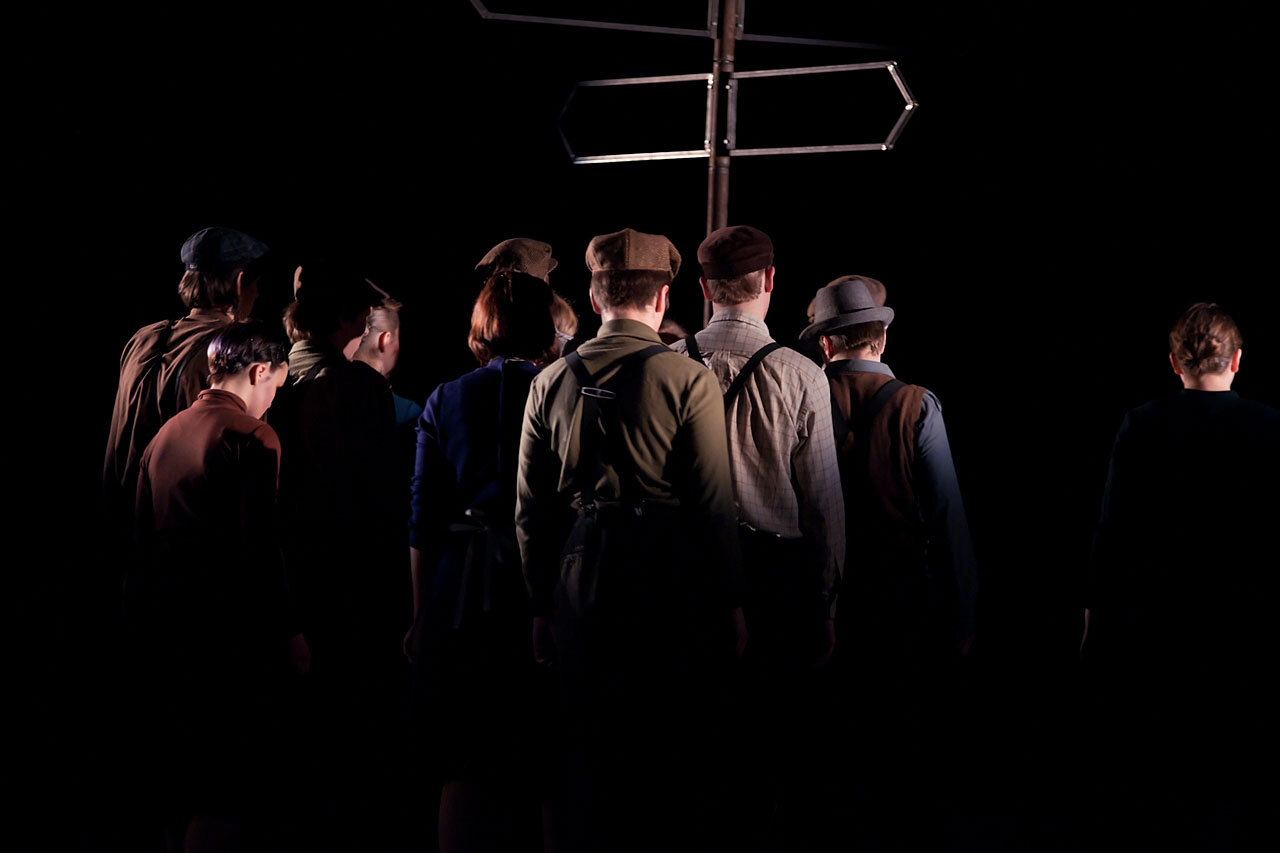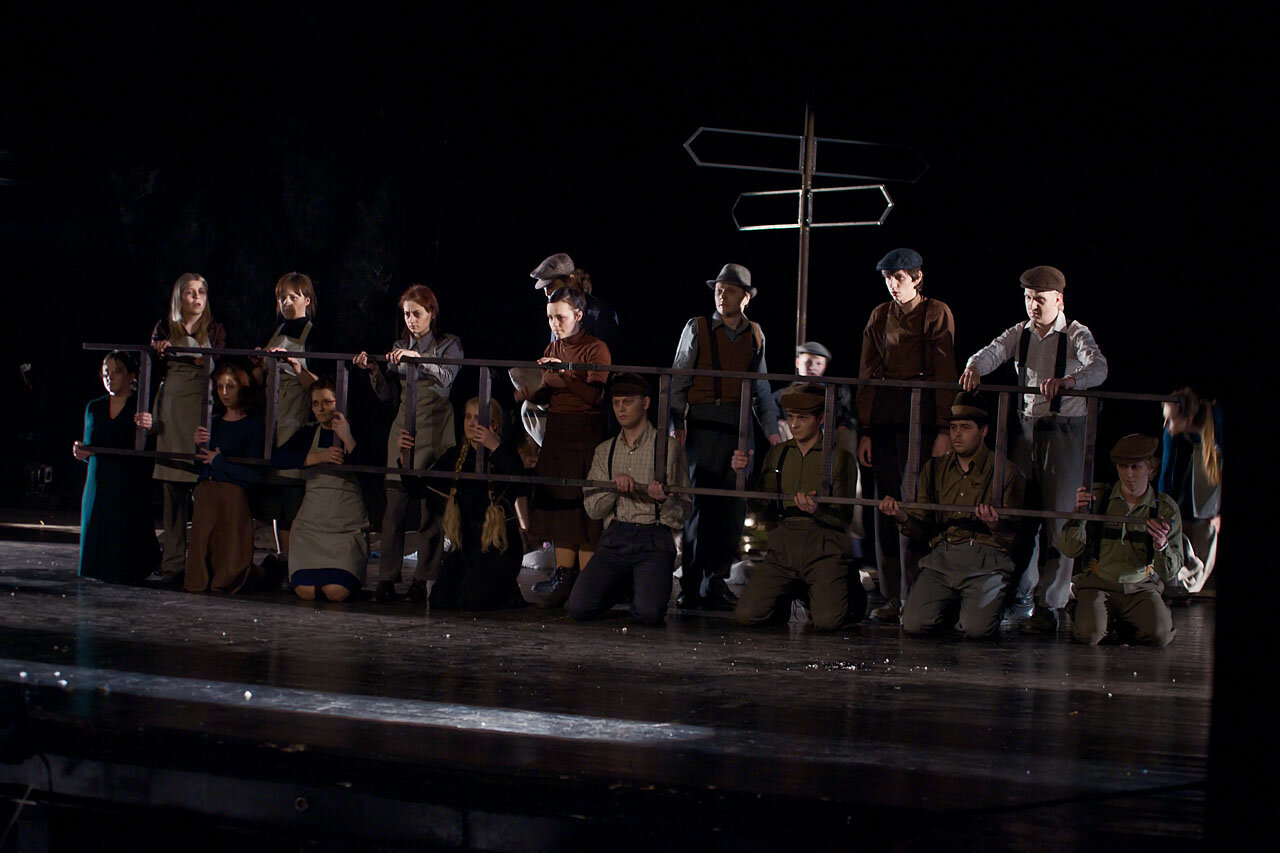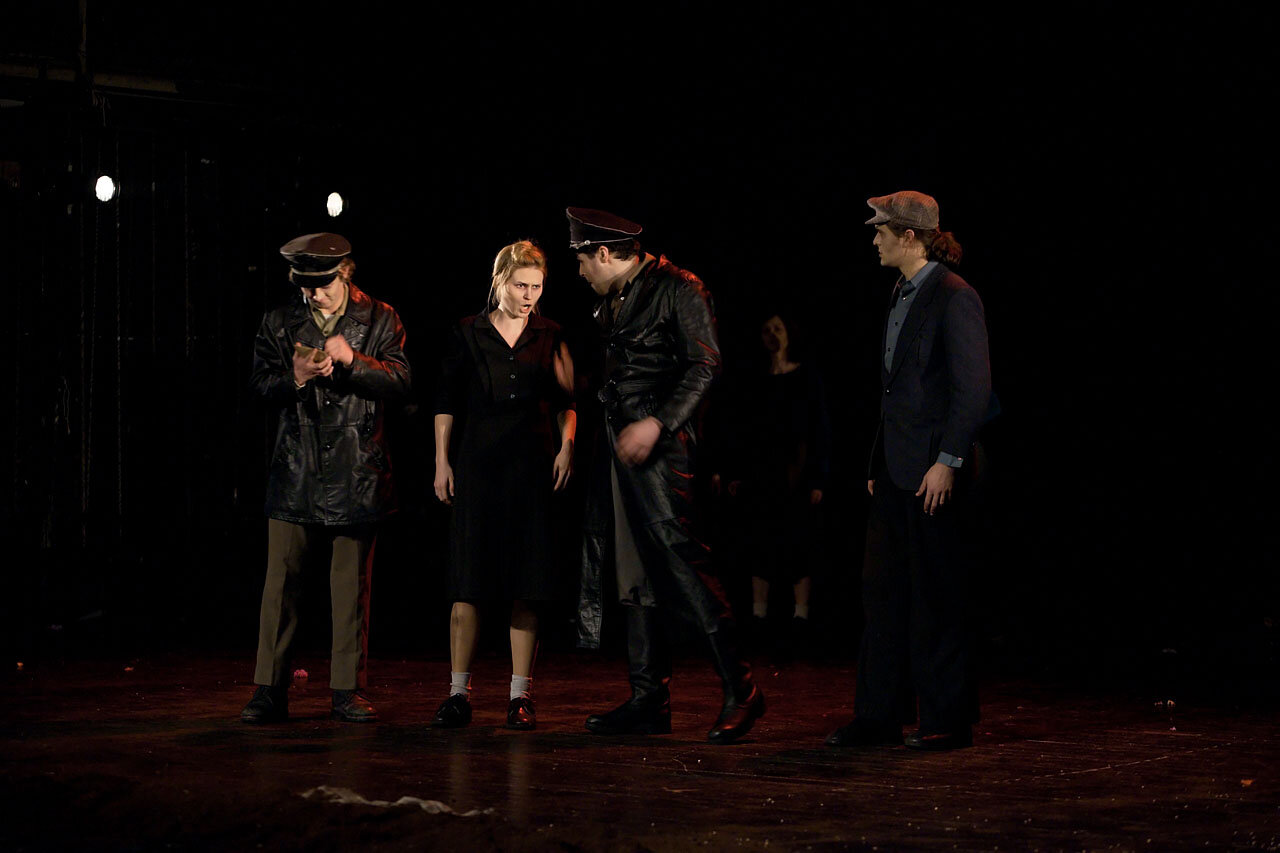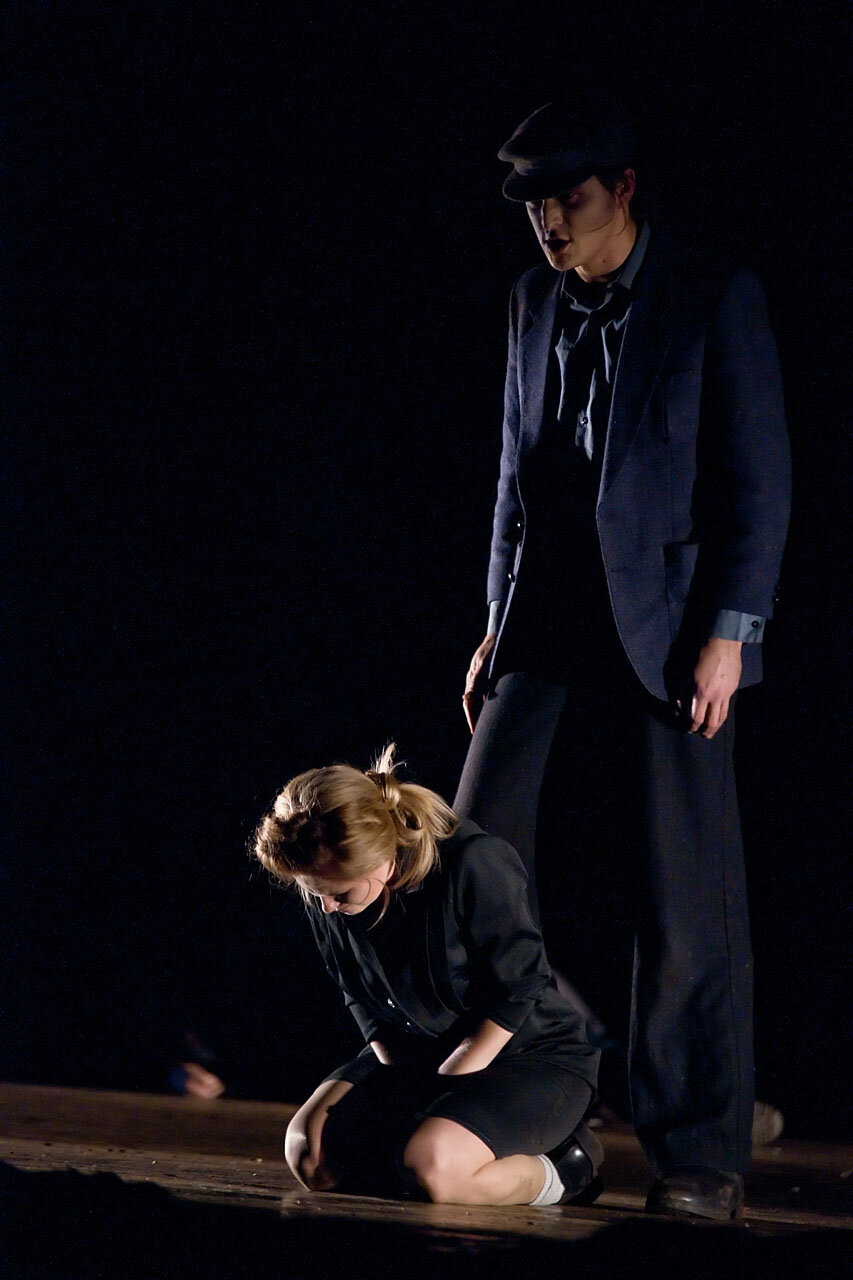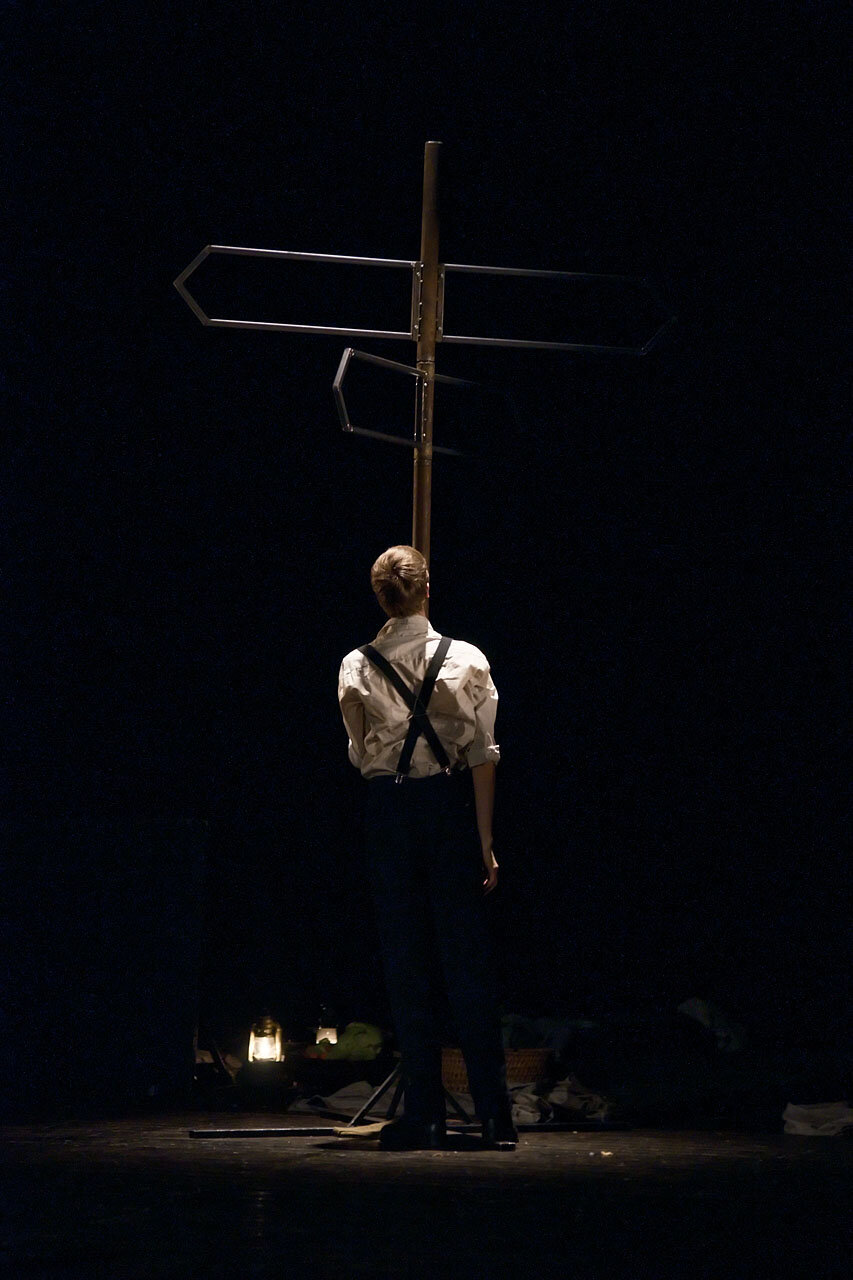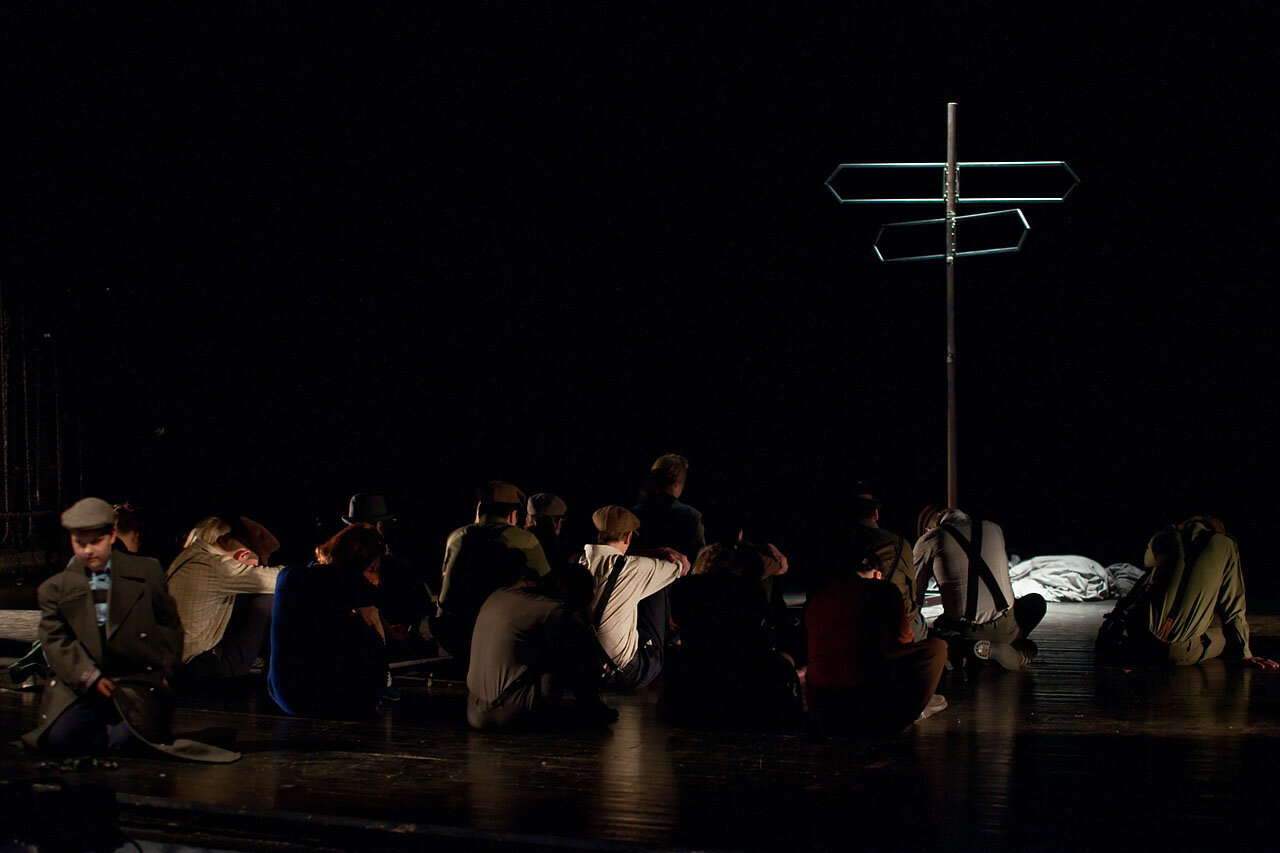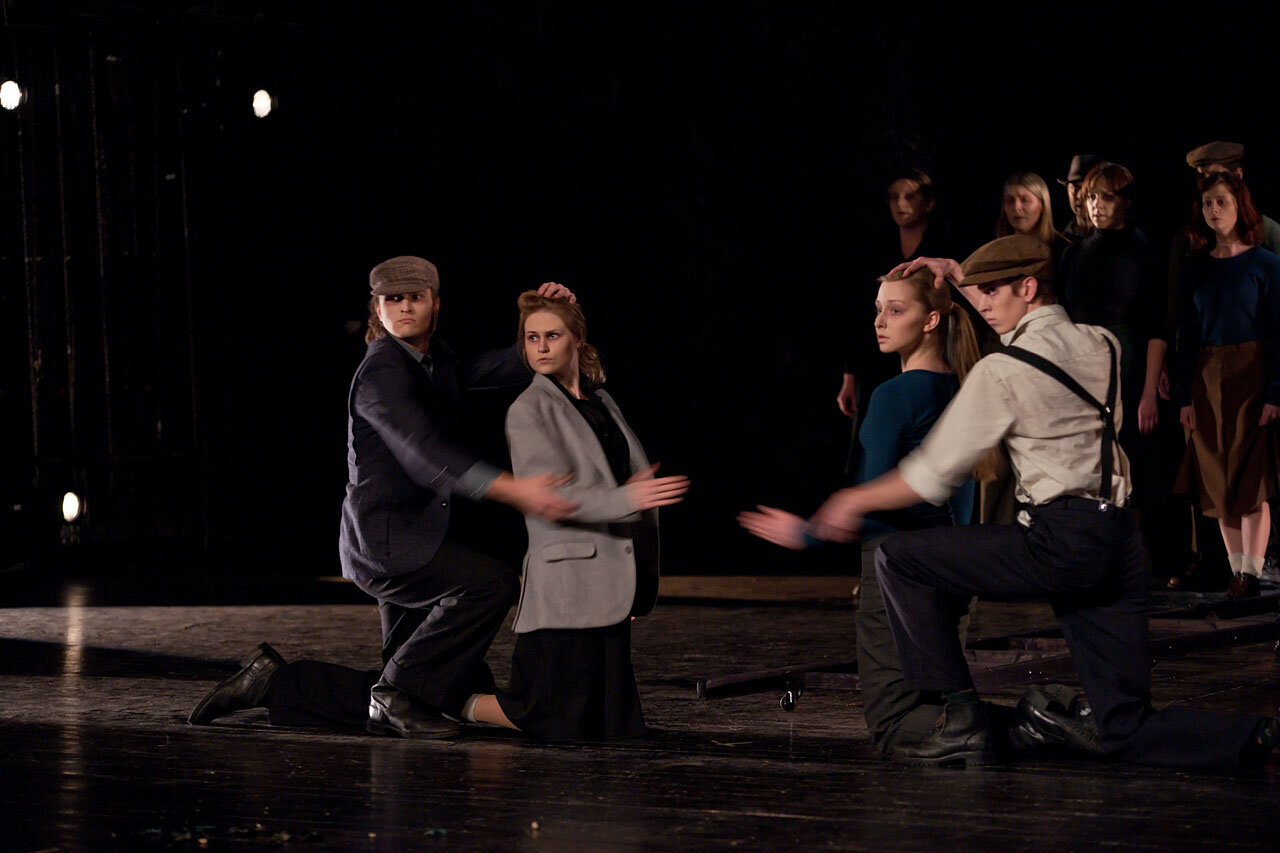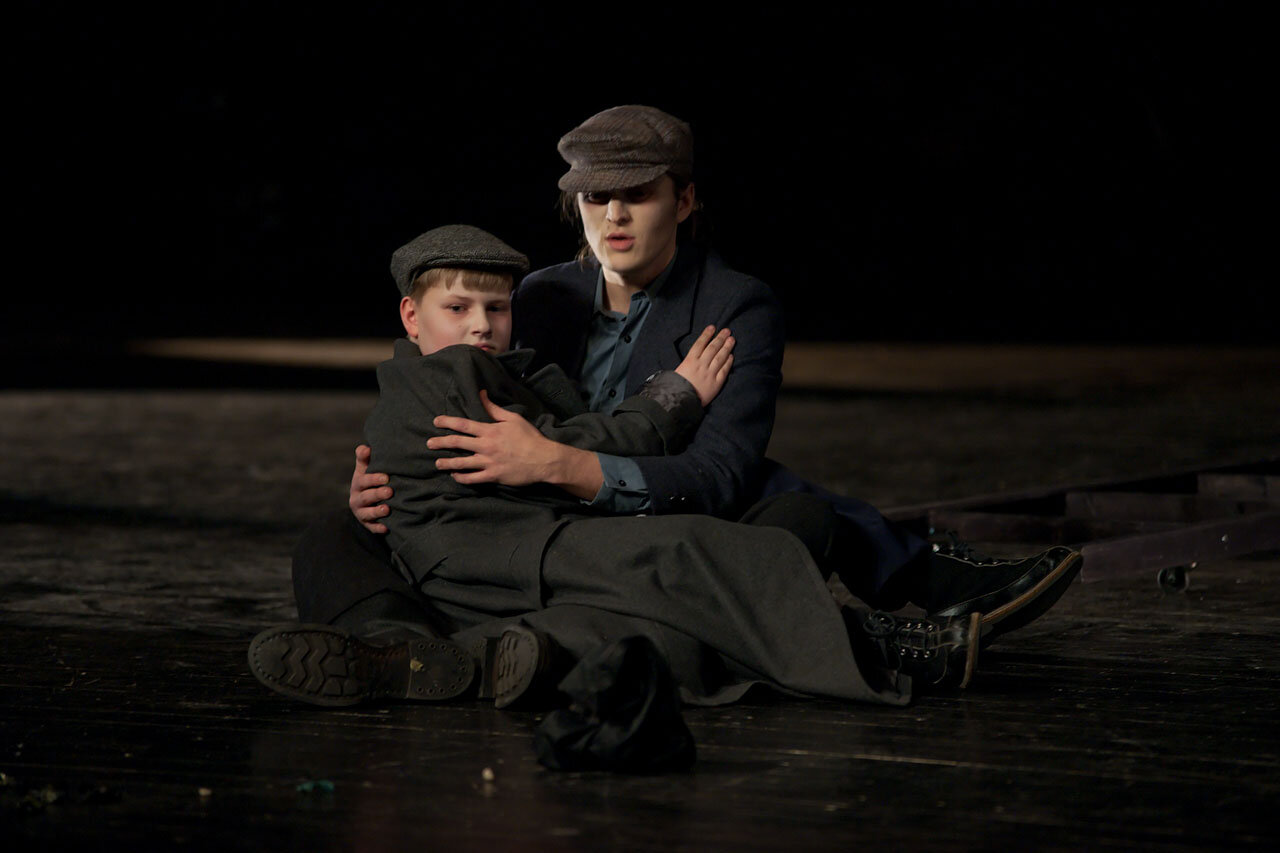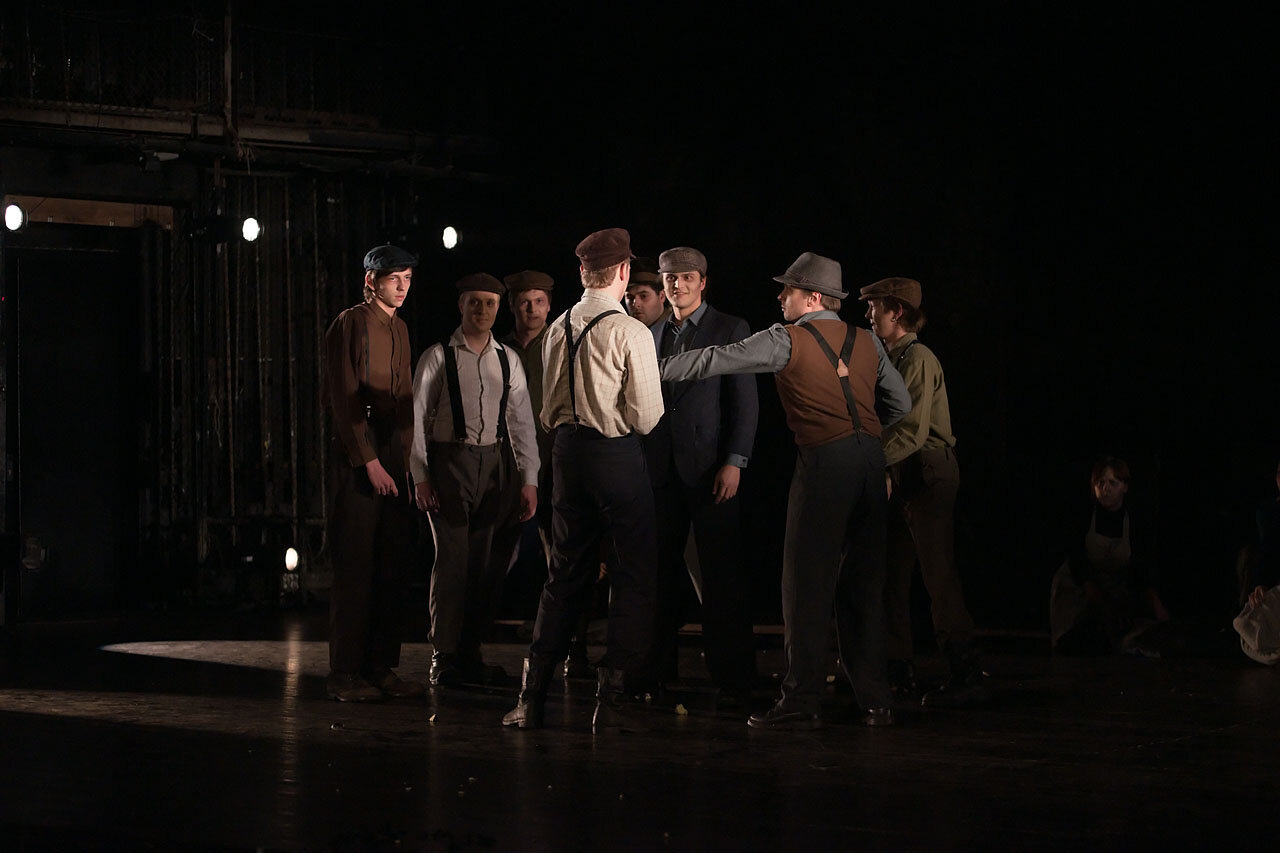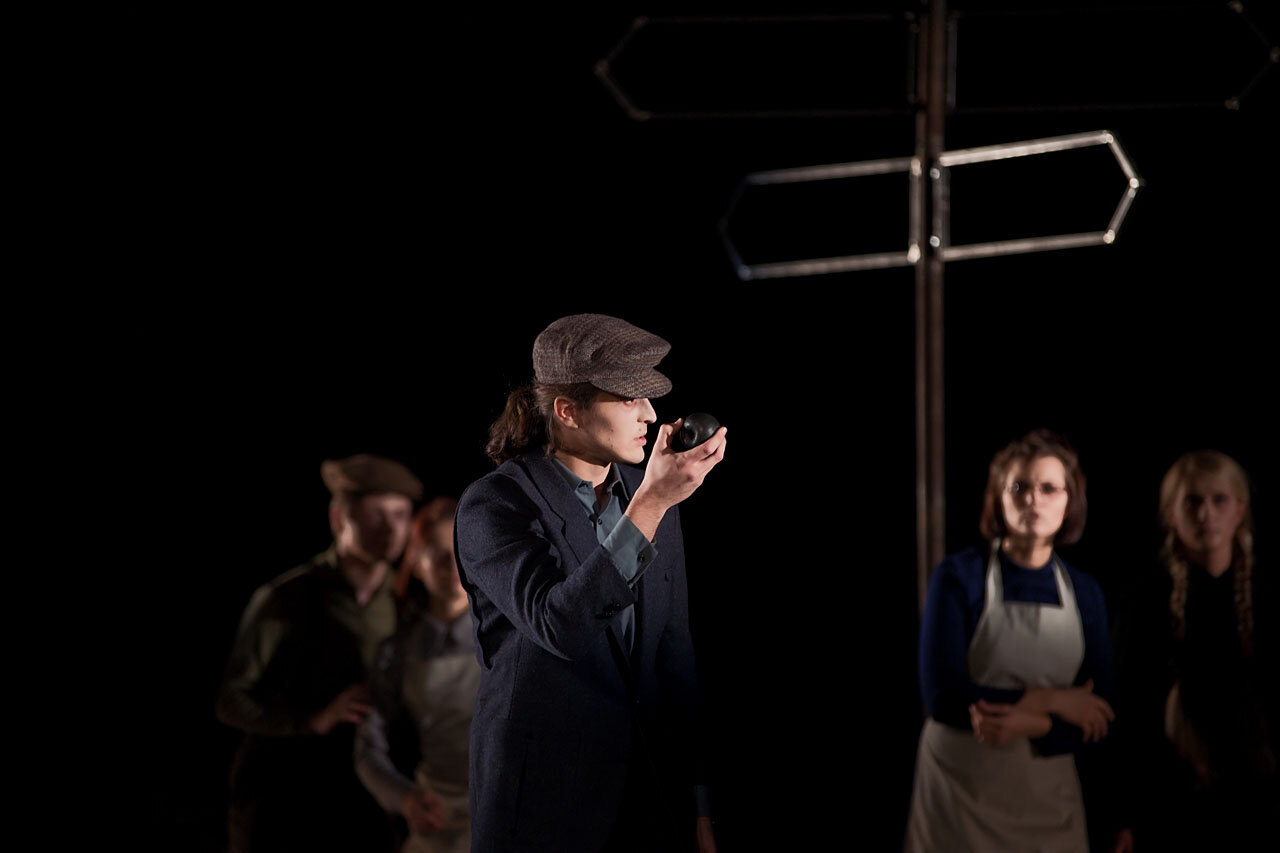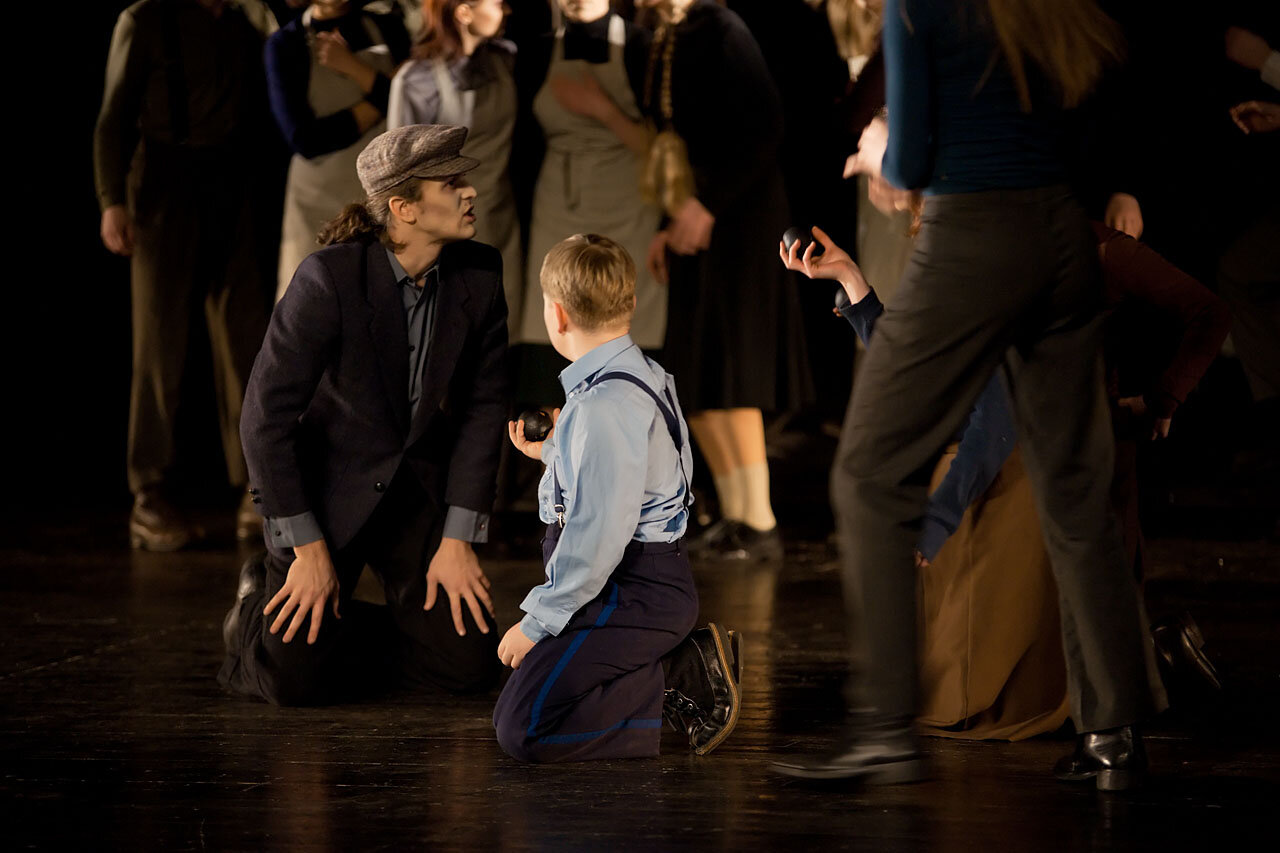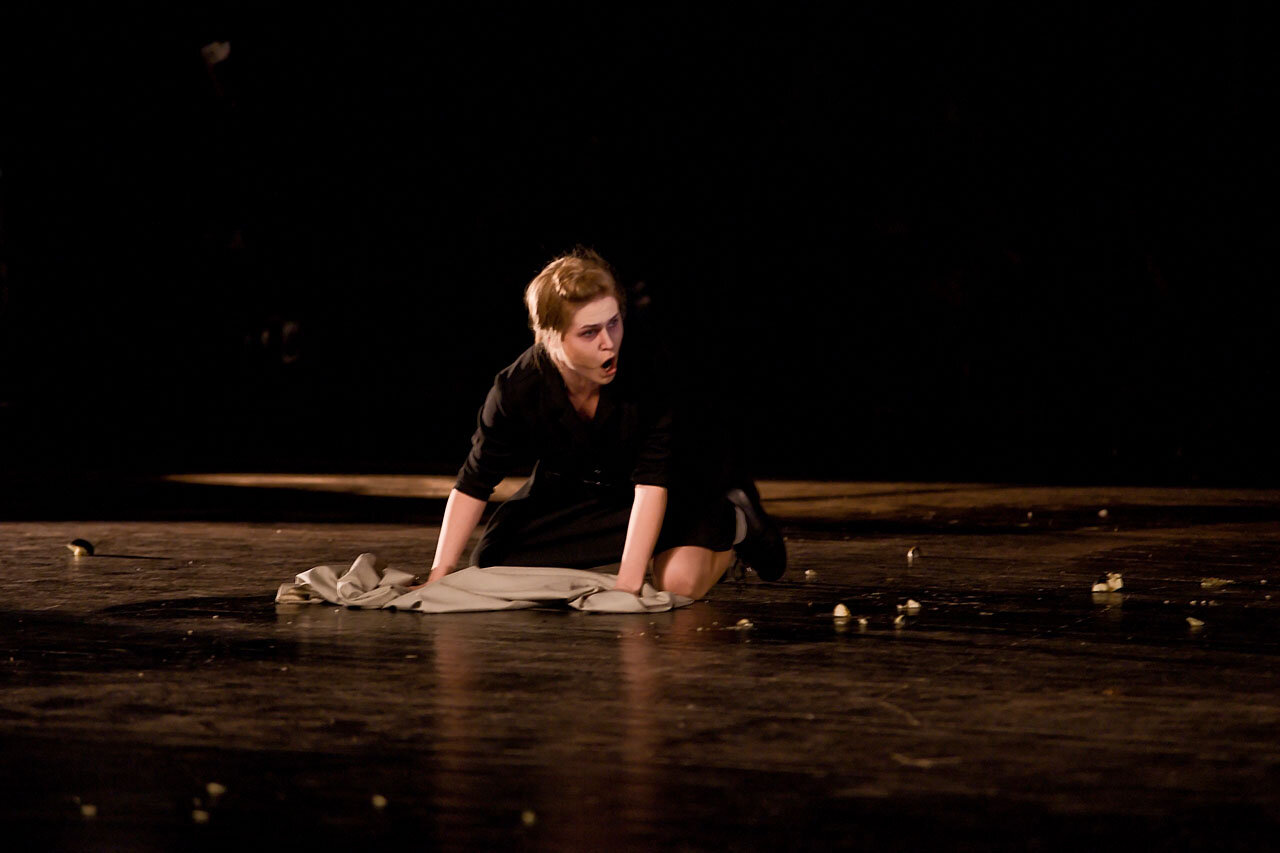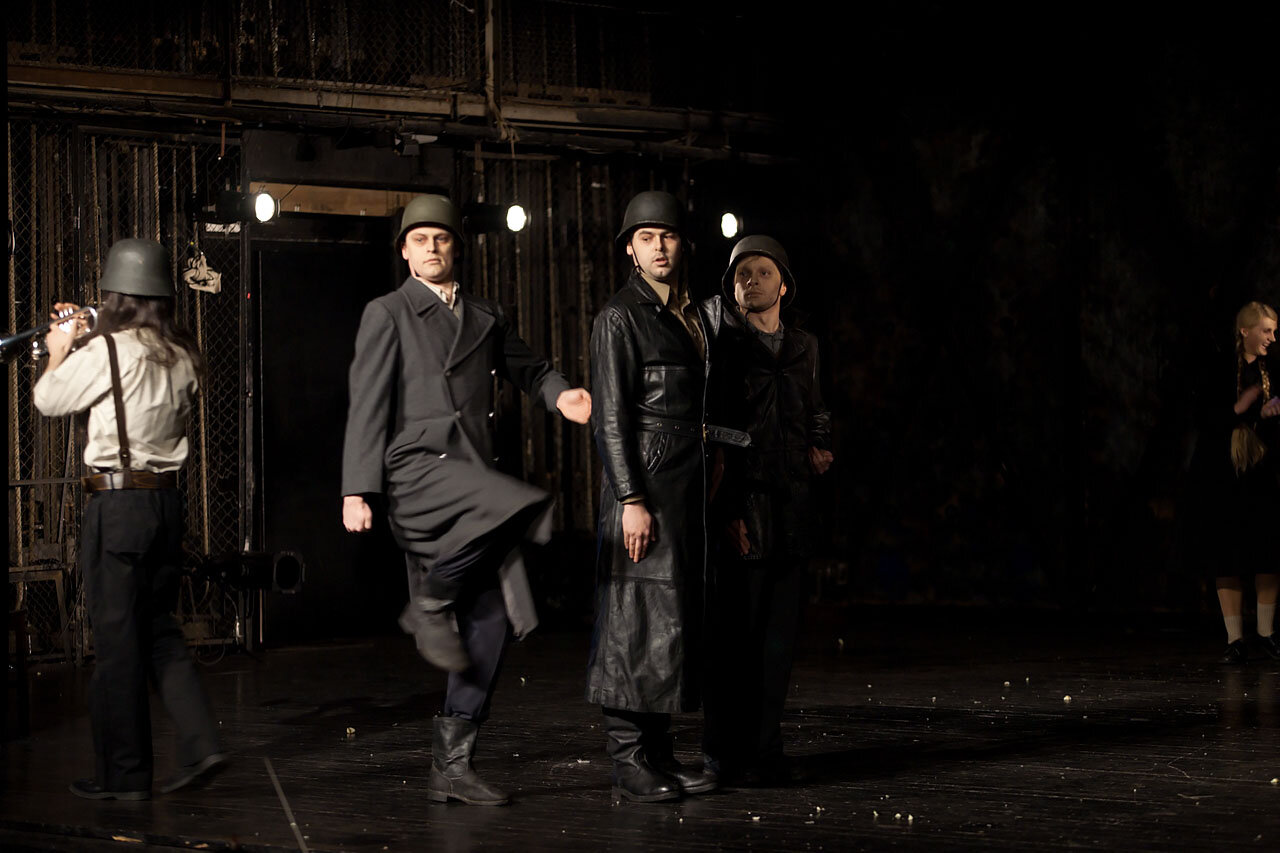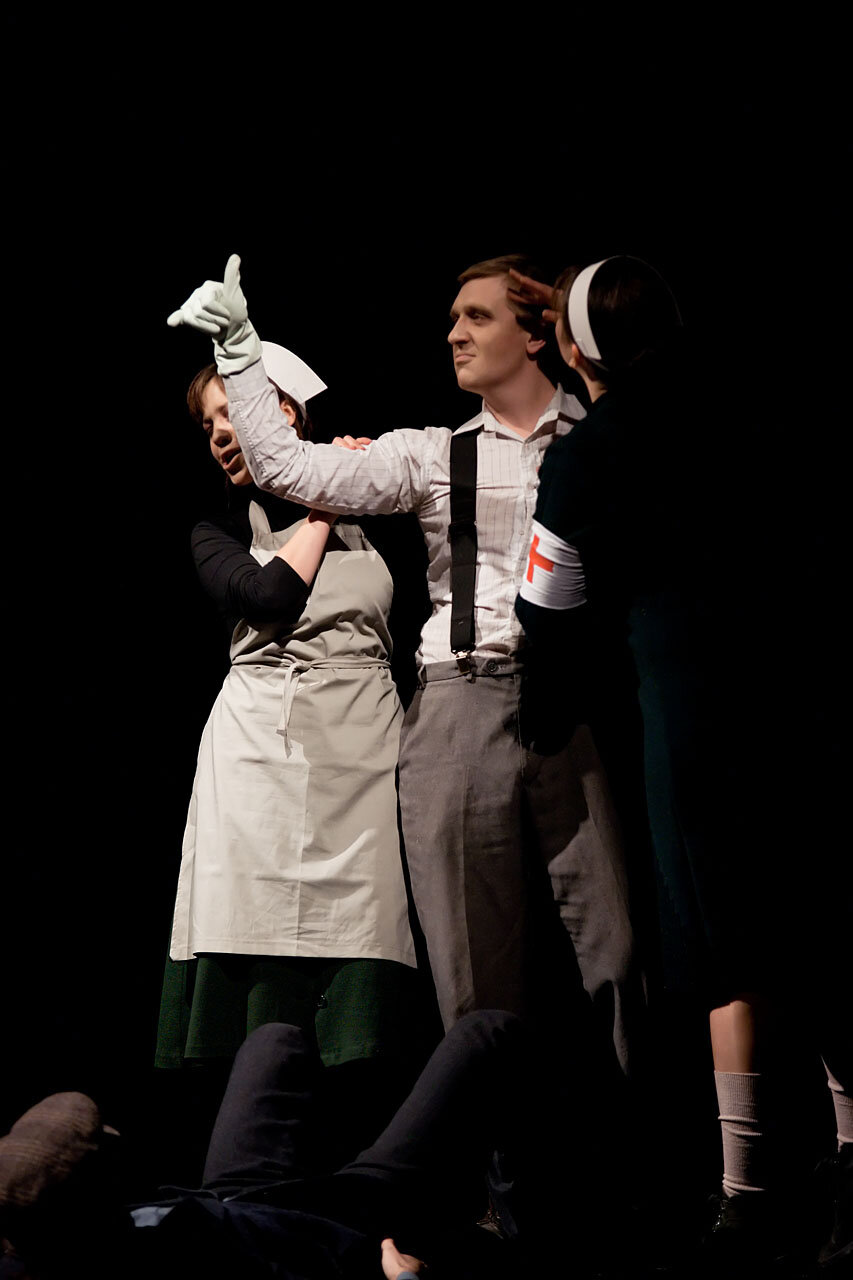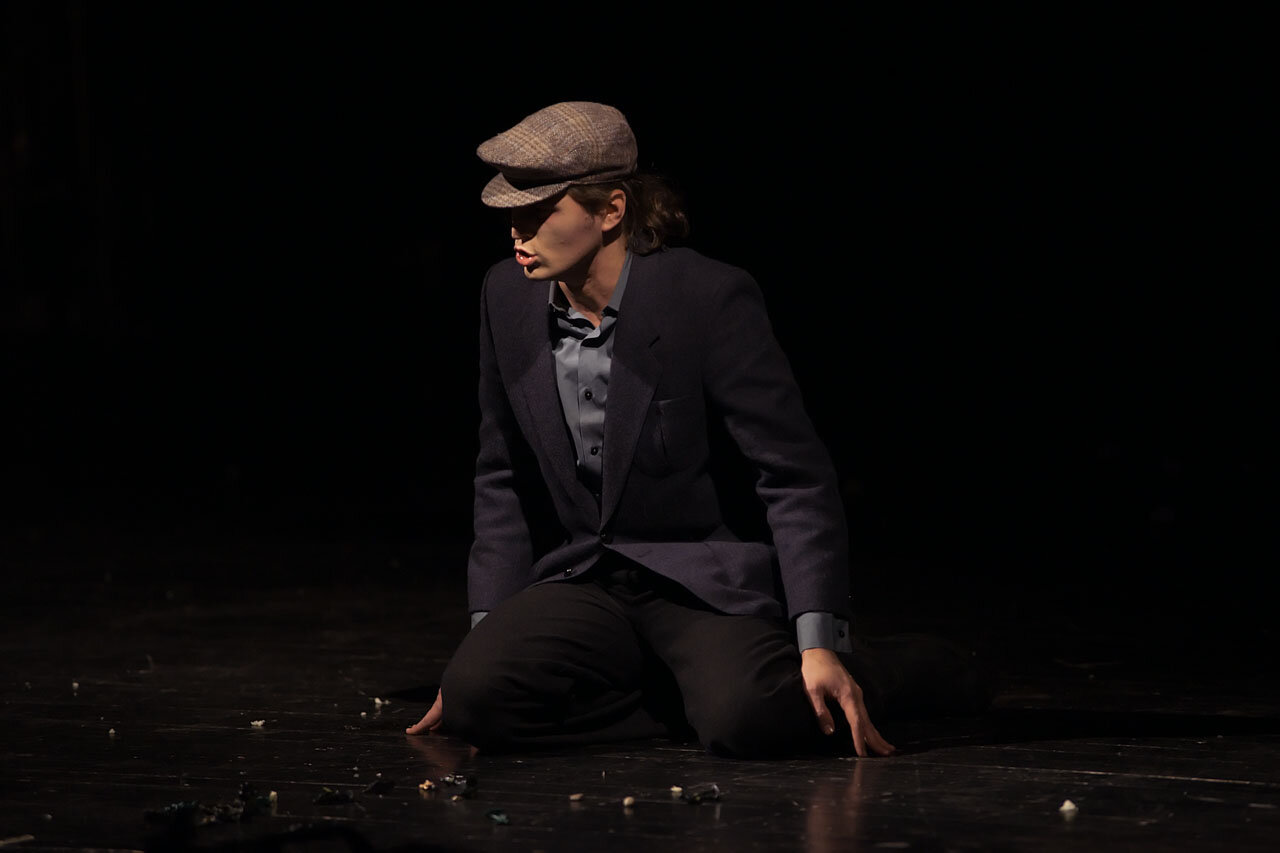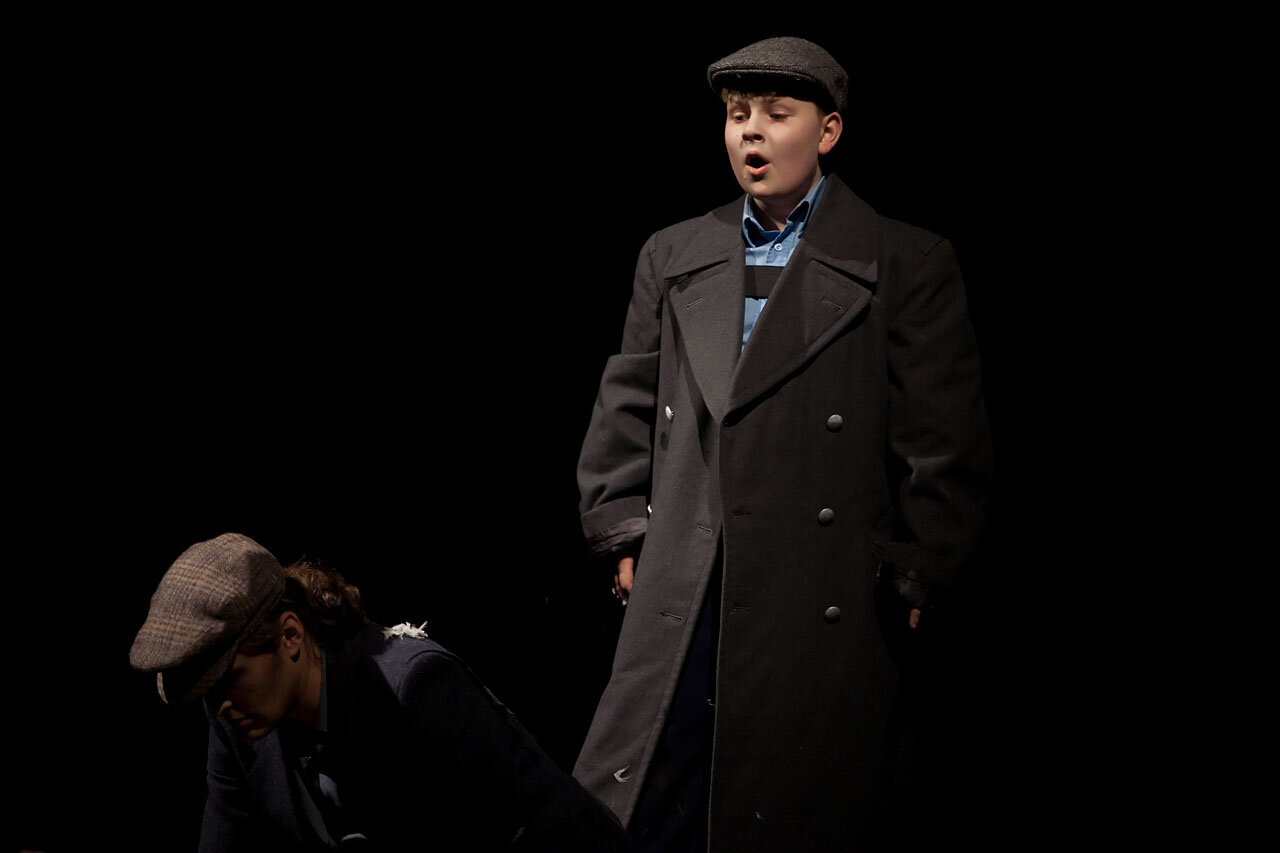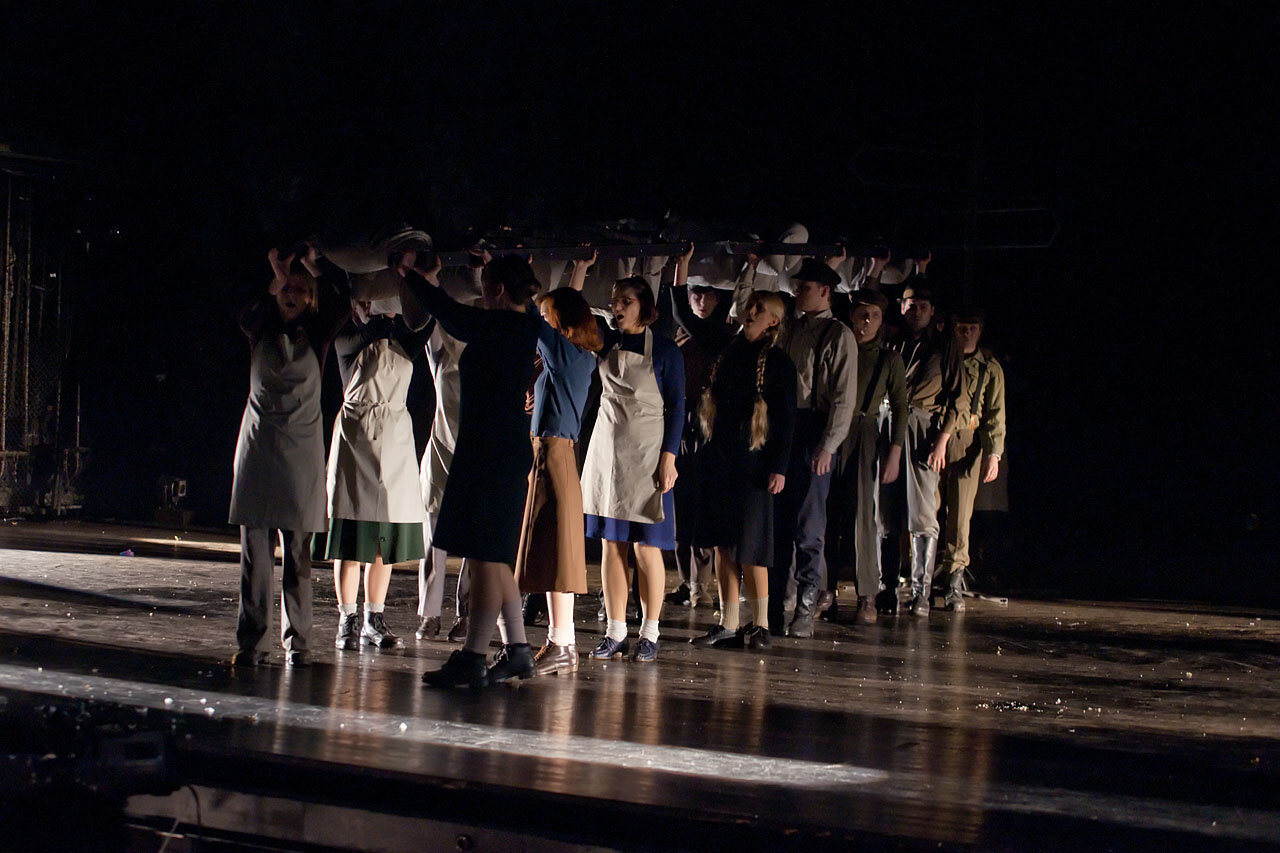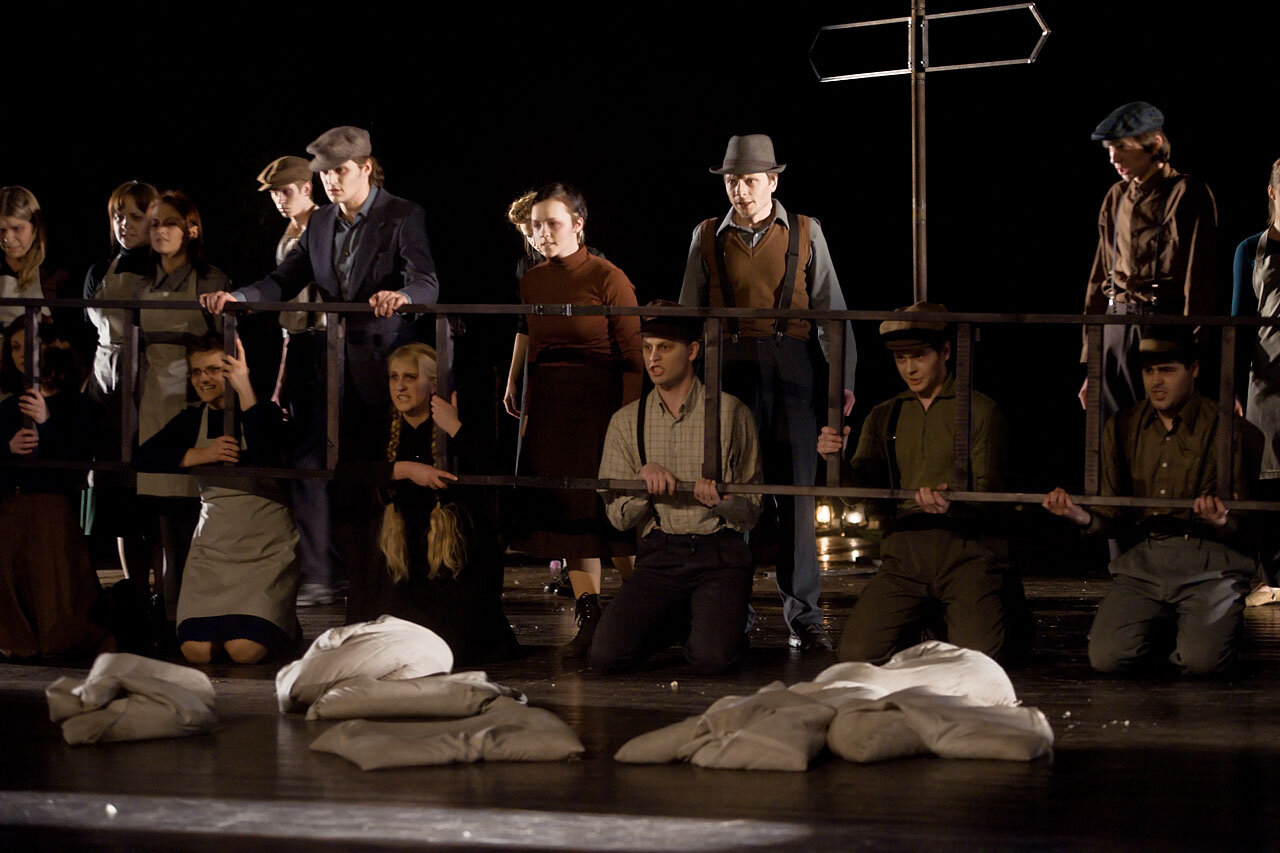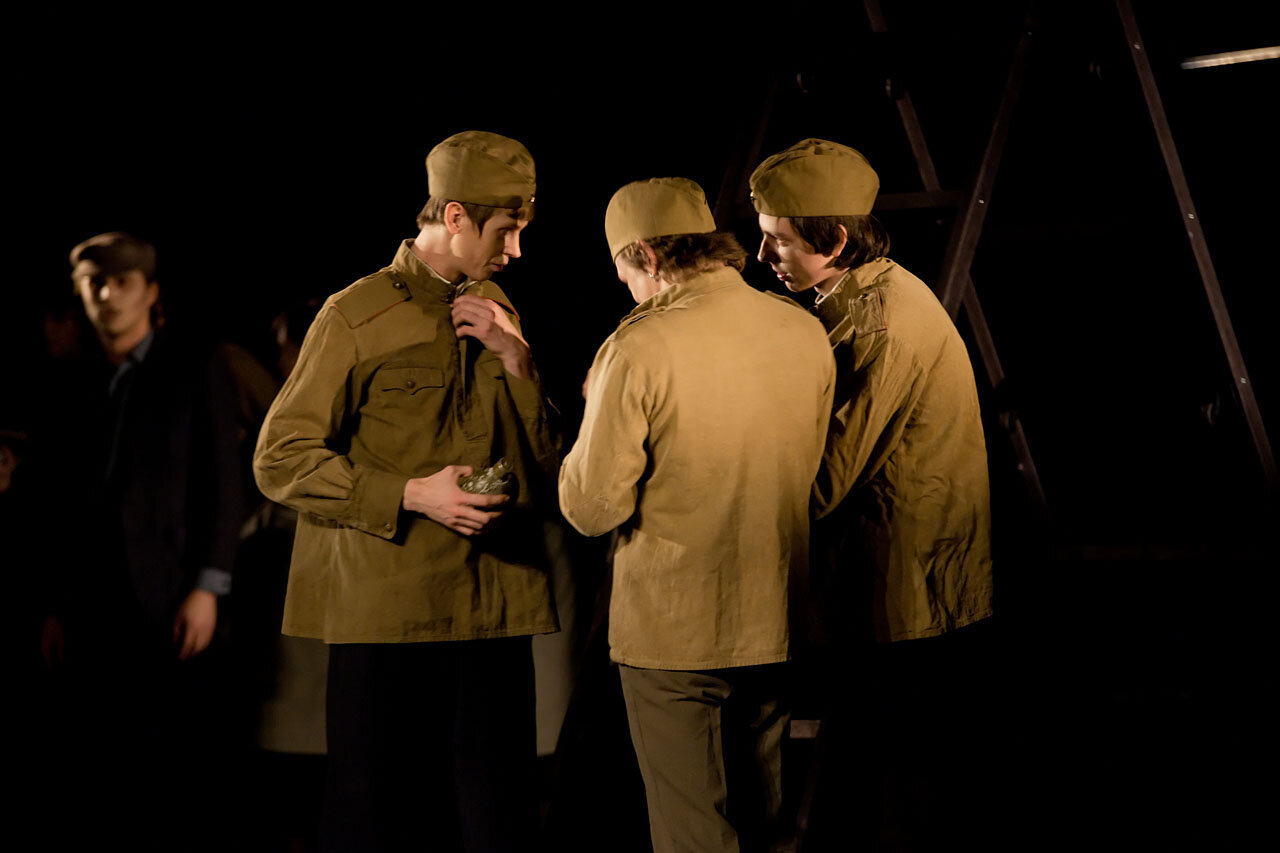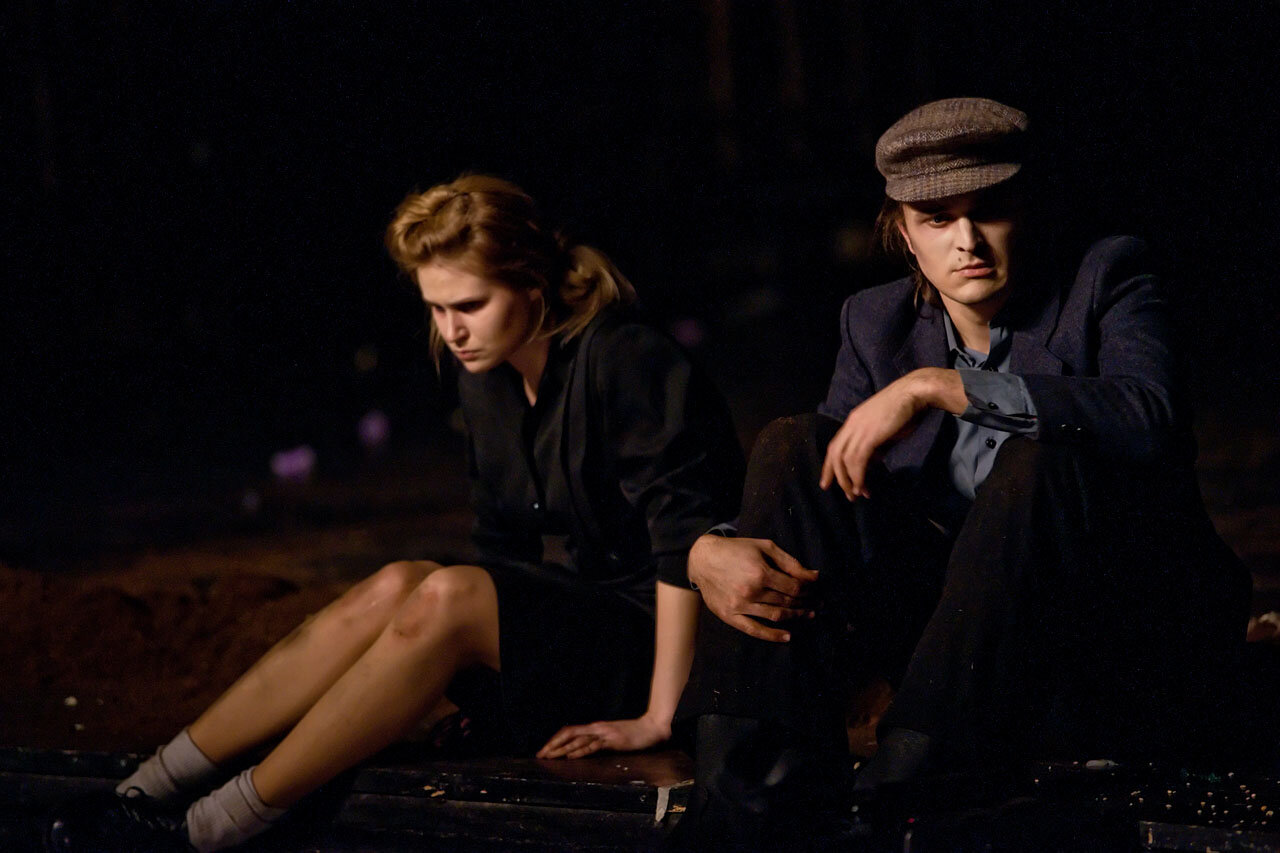 Image 1 of 5
Image 1 of 5

 Image 2 of 5
Image 2 of 5

 Image 3 of 5
Image 3 of 5

 Image 4 of 5
Image 4 of 5

 Image 5 of 5
Image 5 of 5






Julius
opera in two acts for soloists, chorus, and chamber orchestra
Instrumentation: soloists, SATB chorus, auxiliary trumpet, percussion, piano, and strings
Percussion Instruments:
Triangle, 3 Suspended Cymbals (large, medium, small), 2 Tambourines, Slapstick, 3 Wood Blocks (high, medium, low), Snare, Kick Drum, Floor Tom, Glockenspiel, Vibraphone
Duration: 1 hour 20 minutes
Year Composed: 2009
Funded by a 2008-09 U.S. Fulbright Grant
Based on Lithuanian folk music, including the songs the composer’s grandfather sang
Premiered March 23, 2010 at the 3rd annual NOA (New Opera Action) Festival in Vilnius, Lithuania
Score and parts measure 8.5" x 11".
This work is subject to dramatic licensing. License This Work for Performance
Please use both the Rental Inquiry Form and Licensing forms for a rental and licensing quote.
Digital perusal score available upon request.
opera in two acts for soloists, chorus, and chamber orchestra
Instrumentation: soloists, SATB chorus, auxiliary trumpet, percussion, piano, and strings
Percussion Instruments:
Triangle, 3 Suspended Cymbals (large, medium, small), 2 Tambourines, Slapstick, 3 Wood Blocks (high, medium, low), Snare, Kick Drum, Floor Tom, Glockenspiel, Vibraphone
Duration: 1 hour 20 minutes
Year Composed: 2009
Funded by a 2008-09 U.S. Fulbright Grant
Based on Lithuanian folk music, including the songs the composer’s grandfather sang
Premiered March 23, 2010 at the 3rd annual NOA (New Opera Action) Festival in Vilnius, Lithuania
Score and parts measure 8.5" x 11".
This work is subject to dramatic licensing. License This Work for Performance
Please use both the Rental Inquiry Form and Licensing forms for a rental and licensing quote.
Digital perusal score available upon request.
opera in two acts for soloists, chorus, and chamber orchestra
Instrumentation: soloists, SATB chorus, auxiliary trumpet, percussion, piano, and strings
Percussion Instruments:
Triangle, 3 Suspended Cymbals (large, medium, small), 2 Tambourines, Slapstick, 3 Wood Blocks (high, medium, low), Snare, Kick Drum, Floor Tom, Glockenspiel, Vibraphone
Duration: 1 hour 20 minutes
Year Composed: 2009
Funded by a 2008-09 U.S. Fulbright Grant
Based on Lithuanian folk music, including the songs the composer’s grandfather sang
Premiered March 23, 2010 at the 3rd annual NOA (New Opera Action) Festival in Vilnius, Lithuania
Score and parts measure 8.5" x 11".
This work is subject to dramatic licensing. License This Work for Performance
Please use both the Rental Inquiry Form and Licensing forms for a rental and licensing quote.
Digital perusal score available upon request.
Program Notes
Julius tells the story of one man’s struggle to hold onto his dream of returning home as he and his family are pulled in conflicting directions by war, occupation, and the search for freedom. Based on the true story of my late grandfather and his experience as a Lithuanian displaced person in Germany from 1944-51, the opera takes musical inspiration from various styles of Lithuanian song, including the songs Julius sang for over fifty years after he left Lithuania.
The most important melodic material in Julius is built from fragments of the songs Julius sang most frequently. The subject and tone of these songs, some of which are quite well known in Lithuania, are dominated variously by lost love, lost youth, a sense of imprisonment, uncertainty, and homesickness. It was only natural to match each dramatic moment to the song whose original text corresponded most closely to the event or emotion depicted on stage.
The harmony, on the other hand, is indebted to the sutartinė, a unique and ancient type of Lithuanian polyphonic song yielding harmony dominated by seconds rather than thirds or triads. The predominance of secundal harmony throughout Julius supports directly the overall tone of the work. Just as these pervasive dissonances remain unresolved, so do the lives of the characters who remain in a constant state of tense limbo – always moving, yearning, but never changing. — Charles Halka
Julius received its premiere performance on March 23, 2010, at the 3rd annual NOA (New Opera Action) Festival in Vilnius, Lithuania. More information and production photos can be found at Operomanija’s website. A blog documenting the creation and production of this work can be found at www.operainvilnius.blogspot.com.
The creation of Julius was funded by a 2008-09 Fulbright grant. Libretto and direction by Marija Simona Šimulynaitė.
Premiere of the 3rd Contemporary opera festival NOA (New Opera Action)
March 23rd, 2010
Lithuanian Russian Drama Theatre, Great Hall (Vilnius)
Librettist and director - Marija Simona ŠIMULYNAITĖ (Lithuania)
Composer - Charles HALKA (USA)
Scenographer - Daiva SAMAJAUSKAITĖ (Lithuania)
Music director and conductor - Ričardas ŠUMILA (Lithuania) Choirmaster - Stasė ŽALTAUSKAITĖ (Lithuania)
Julius Jušinskas - Tomas PAVILIONIS (tenor)
Adelina Jušinskienė - Ona KOLOBOVAITĖ (soprano)
Juliukas - Deividas KAIRYS (descant)
DPs, doctor, nurses, agents - NOA choir
Dancers - Ieva SVETICKAITĖ, Daniil KOLMIN
NOA orchestra
Presented by OPEROMANIJA
More info at charleshalka.com or JuliusTheOpera.com
★★★★★
“Most striking was Dipuku Rauda. Gutteral, fricative, explosive tones, perfectly joined together like some kind of demented basso continuo formed the sounds of a steam locomotive and propelled the work forward underneath a chorus of soprano and alto voices forming the train whistle. This “displaced persons lament” uses a Lithuanian text from the opera Julius, composed by Charles Halka.”
Photos by Jurgis Sakalauskas
★★★★★
“Equally compelling was the West Coast premiere of “Dipukų Rauda” (Lithuanian for “displaced person’s lament”). This is actually an excerpt from the first scene of Charles Halka’s opera Julius, named for the composer’s grandfather, from whom he learned a repertoire of Lithuanian songs. In the opera this music is set on a train crammed with Eastern European refugees being taken to Western Europe. The hard consonants of the text capture not only the emotional intensity of this voyage into the unknown but also the unrelenting rhythms of the train itself. The impact of the music thus depends heavily on the sonorities of the text, and the program made it a point to recognize the coaching in Lithuanian provided by Diana Placiakiene to prepare for the performance.”


